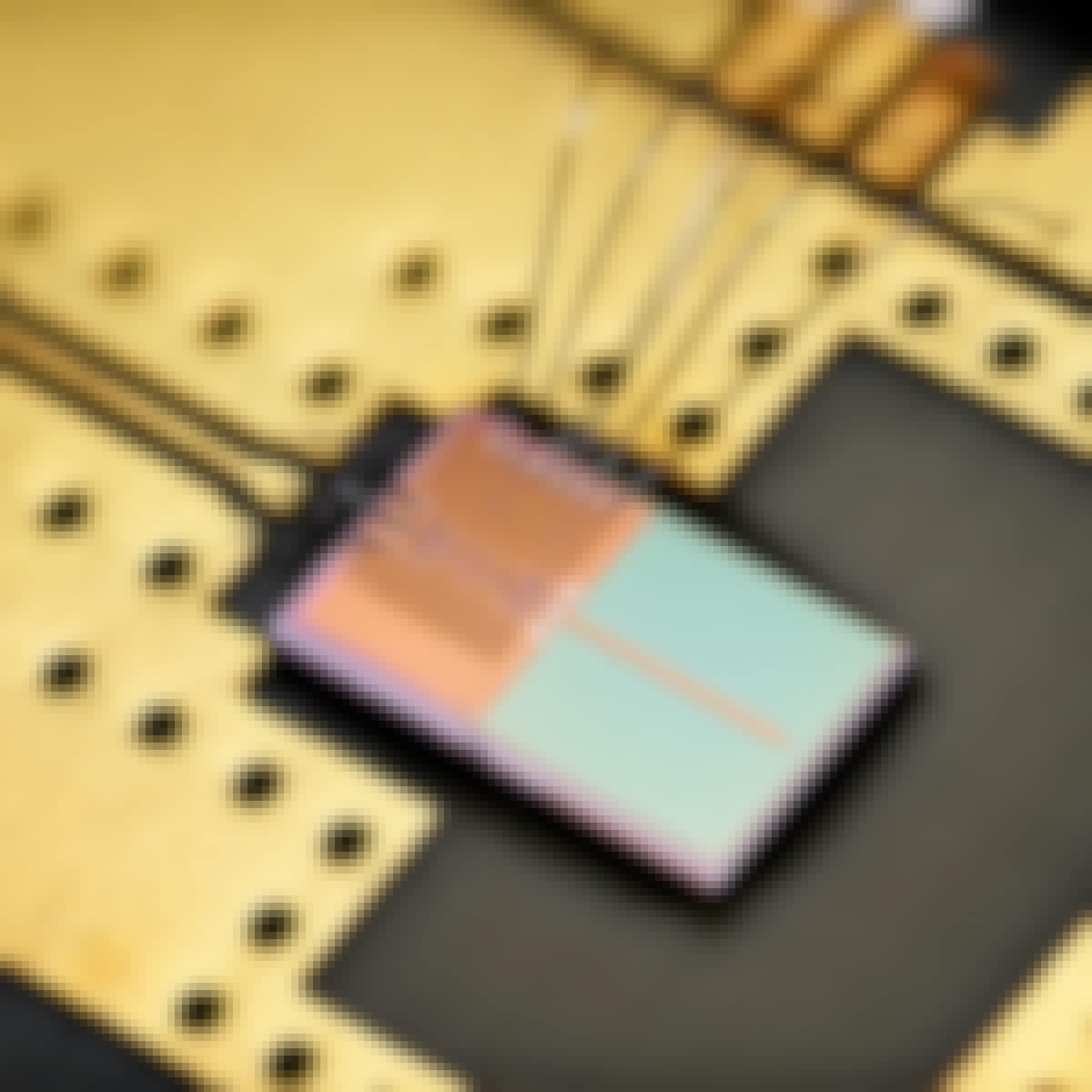Filter by
SubjectRequired
LanguageRequired
The language used throughout the course, in both instruction and assessments.
Learning ProductRequired
LevelRequired
DurationRequired
SkillsRequired
SubtitlesRequired
EducatorRequired
Explore the Circuits Course Catalog

 Status: Free
Status: Free
University of Rochester
Skills you'll gain: Basic Electrical Systems, Music, Electrical Engineering, Electronics, Electronic Components, Electronics Engineering, Electrical Systems, Instrumental Music, Vibrations, Equipment Design, Construction, Mechanical Design
 Status: Free
Status: Free
University of California, Santa Cruz
Skills you'll gain: Systems Design, Model Based Systems Engineering, Mathematical Modeling, Simulations, Control Systems, Embedded Systems, Systems Analysis, Computational Logic, Digital Communications, Differential Equations, Estimation


Johns Hopkins University
Skills you'll gain: Hardware Design, Electronic Hardware, Schematic Diagrams, Computer-Aided Design, Mechanical Design, Electrical Engineering, 3D Modeling, Electronics, Simulation and Simulation Software, Technical Design, Verification And Validation, Open Source Technology
 Status: Free
Status: Free
École Polytechnique
Skills you'll gain: Semiconductors, Display Devices, Computer Displays, Electronics, Electronic Components, Electrical Engineering, Chemistry
 Status: NewStatus: Free
Status: NewStatus: Free
Coursera Instructor Network
Skills you'll gain: Hardware Design, Electronics Engineering, Engineering Design Process, Electronic Hardware, Electronics, Design, Technical Design, Semiconductors, Computer-Aided Design, Electrical and Computer Engineering, Electronic Systems, Electronic Components, Verification And Validation, Simulation and Simulation Software, Open Source Technology, Schematic Diagrams
 Status: Free
Status: Free
Universitat Autònoma de Barcelona
Skills you'll gain: Computer Architecture, Hardware Architecture, Technical Design, System Design and Implementation, Application Specific Integrated Circuits, Embedded Systems, Digital Design, Computer Hardware, Computational Logic, Simulations
 Status: Free
Status: Free
Eindhoven University of Technology
Skills you'll gain: Electronics Engineering, Electronics, Telecommunications, Electronic Systems, Electronic Components, Hardware Design, Electrical Engineering, Wireless Networks, Electronic Hardware, Systems Design, Simulation and Simulation Software, Simulations, Laboratory Experience


Tecnológico de Monterrey
Skills you'll gain: Semiconductors, Electronic Components, Basic Electrical Systems, Electronic Systems, Electronics, Power Electronics, Electrical Engineering, Digital Communications

Skills you'll gain: Field-Programmable Gate Array (FPGA), Application Specific Integrated Circuits, Computational Logic, Computer Architecture, Hardware Design, Electronics Engineering, Electronics, Programmable Logic Controllers, Electronic Systems, Semiconductors, Electronic Components, Data Storage, Data Storage Technologies
 Status: Free
Status: Free
Columbia University
Skills you'll gain: Semiconductors, Electronics, Electronics Engineering, Electronic Components, Simulation and Simulation Software, Electrical Engineering, Mathematical Modeling, Differential Equations, Calculus

Skills you'll gain: Electronics, Hardware Design, Electronics Engineering, Electrical Engineering, Computer Architecture, Schematic Diagrams, Semiconductors, Electronic Components, Low Voltage, Simulation and Simulation Software, Verification And Validation, Software Installation, Data Validation


University of Illinois Urbana-Champaign
Skills you'll gain: Computational Logic, Application Specific Integrated Circuits, Theoretical Computer Science, Data Structures, Verification And Validation, Computer Architecture, Algorithms, Computer Engineering, Programming Principles, Mathematical Software, Graph Theory, Software Development Tools
In summary, here are 10 of our most popular circuits courses
- Fundamentals of Audio and Music Engineering: Part 1 Musical Sound & Electronics: University of Rochester
- Cyber-Physical Systems: Modeling and Simulation: University of California, Santa Cruz
- Designing Hardware for Raspberry Pi Projects: Johns Hopkins University
- Plastic electronics: École Polytechnique
- Introduction to Chip Design with Open-Source EDA Tools: Coursera Instructor Network
- Digital Systems: From Logic Gates to Processors: Universitat Autònoma de Barcelona
- RF and millimeter-Wave Circuit Design: Eindhoven University of Technology
- Electrónica Básica y Circuitos Integrados Lineales: Tecnológico de Monterrey
- Fundamentals of Digital Design for VLSI Chip Design: L&T EduTech
- MOS Transistors: Columbia University











